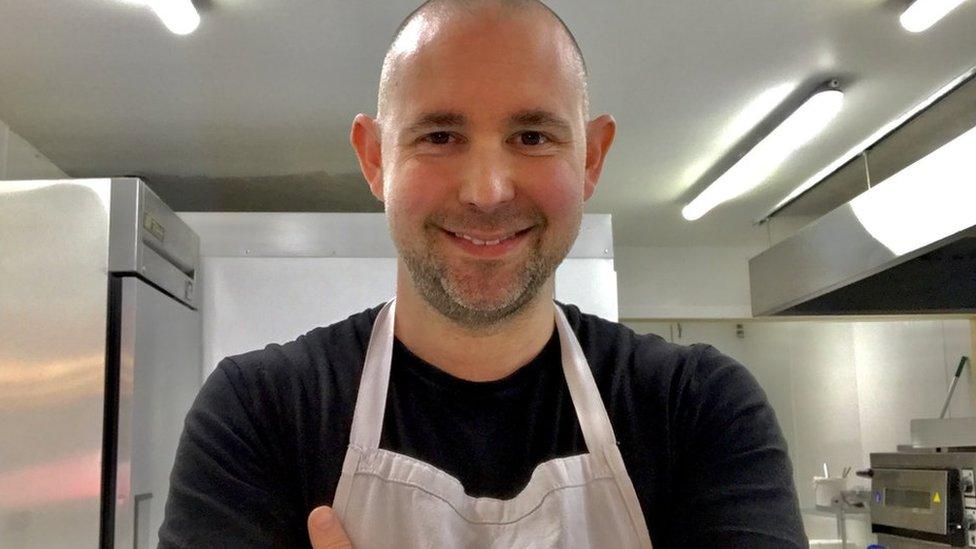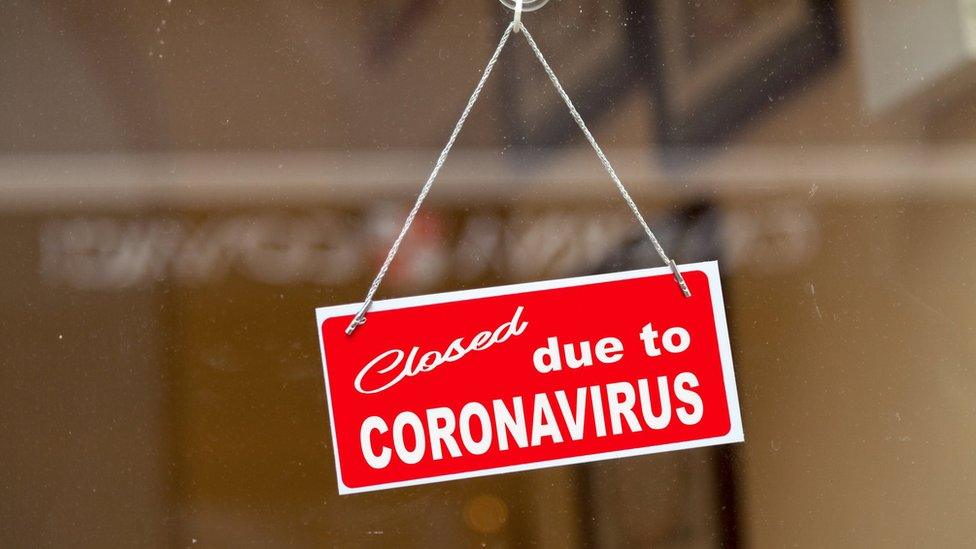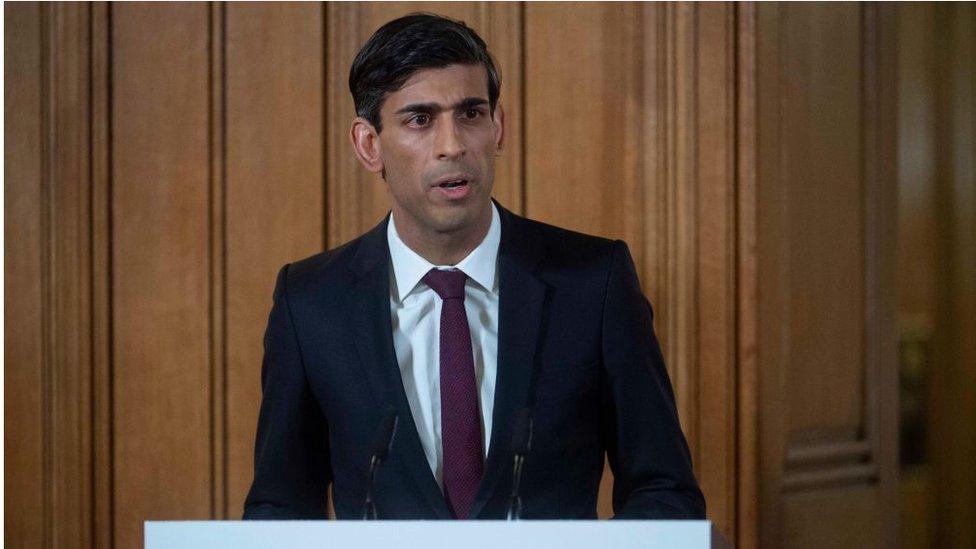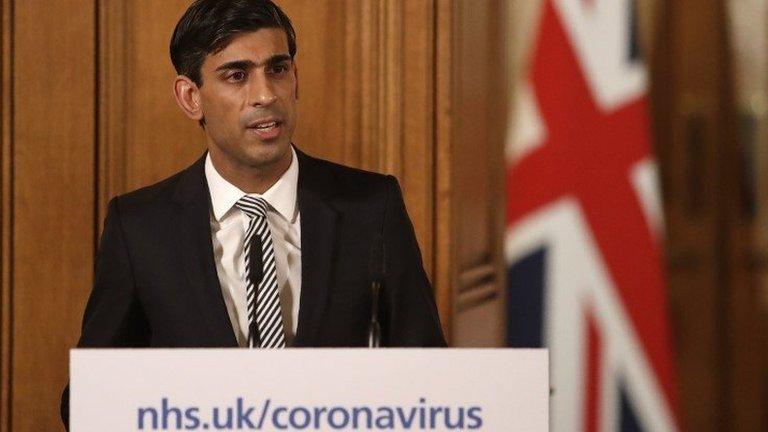Coronavirus: Firms face 'inexcusable' delay over lockdown grants
- Published

Tim Coleman (right) said he had spent £50,000 of his own money paying suppliers while he waited for help
About half of companies eligible for emergency coronavirus grants have not yet received funding, data shows.
The government announced emergency grants, external of £10,000 to £25,000 to help small businesses on 17 March.
A month later, half of the £12bn available has been distributed to half of the one million businesses in England deemed eligible.
The government said it was working with councils to ensure that "vital" funds were paid quickly.
Lump sums of £10,000, through the Small Business Grant Fund, and £25,000 through the Retail, Hospitality and Leisure Grant Fund, were intended to help minimise disruption in businesses' cash flows.

'The knock-on effect is massive'

Daniel Duckett said the grant support "made all the difference" for his patisserie business
Tim Coleman, owner of Chevron Heritage Ltd, said he had £100,000 worth of car parts waiting to export, but no access yet to grants or business loans, and said the impact on cash flow was "catastrophic".
"I've put in as much of my own personal funding as I can - £50,000 of my own money - to pay my suppliers, most of whom are also small and micro-businesses which are suffering," he said.
"The consequence of me not getting the money is I won't be able to pay my suppliers, some of which may go bust.
"The knock-on effect is massive."

Mike Cherry, chair of the Federation of Small Businesses (FSB), said access to the funding would "decide the fate" of some firms, and welcomed grants already handed out by local authorities.
"The funding is there to be used to ensure we have a strong and robust economy to bounce back with once restrictions ease, so it's inexcusable for any council to delay," he said.
"Get the money out there and back our small businesses."
Latest government monitoring figures show the distribution of grants in England only. Devolved areas such as Northern Ireland have parallel schemes.
Daniel Duckett runs Lazy Claire Patisserie in Belfast and said a small business relief grant had "made all the difference".
"It meant that we didn't go into the red. It was getting very, very tight and I was getting concerned that we would not have any cash to cover things," he said.
"When there's no turnover for cafes or hospitality, it makes all the difference to people to pay for payroll and all the bills that are scheduled to come out."

A SIMPLE GUIDE: How do I protect myself?
AVOIDING CONTACT: The rules on self-isolation and exercise
HOPE AND LOSS: Your coronavirus stories
LOOK-UP TOOL: Check cases in your area

A spokesperson for the Department for Business said the government had been supporting local authorities to ensure vital funds got to "hard-pressed" small business owners as soon as possible.
"The speed at which local authorities have paid grant money out can vary because of the different number and mix of eligible businesses in their area," he said.
"We urge them to continue to work at pace so all eligible businesses receive the grants."
Richard Watts, of the Local Government Association's resources board, said: "Councils know these grants are a vital lifeline to businesses who may be struggling and worried about the future.
"It has been a big task to set up and administer this new scheme in a matter of weeks, but councils will continue to work at pace to ensure eligible businesses receive this vital funding as quickly as possible."

More about this story
The Shared Data Unit makes data journalism available to news organisations across the media industry, as part of a partnership between the BBC and the News Media Association.
For more information on methodology, click here, external. For the full dataset, click here, external. Read more about the Local News Partnerships here.
- Published25 April 2020

- Published29 May 2020

- Published24 April 2020

- Published17 March 2020
